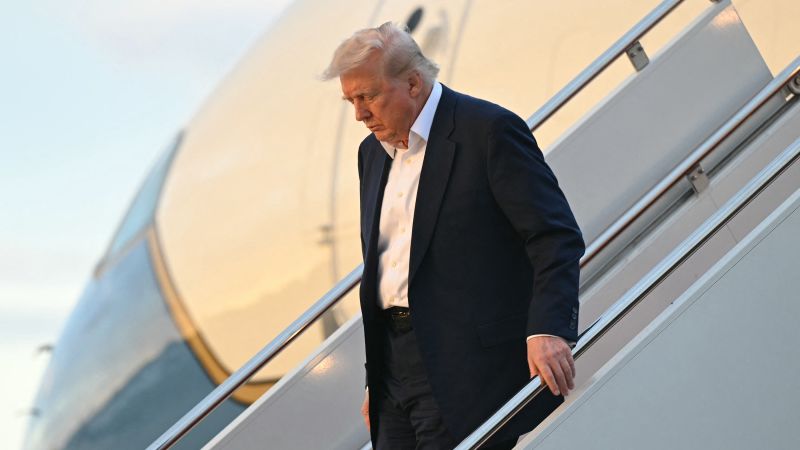The Trump administration is preparing to acquire a luxury aircraft gifted by the Qatari royal family, which is intended to be retrofitted and utilized as Air Force One during President Trump’s anticipated second term. This revelation comes from two sources conversant with the discussions, as reported by CNN. This move marks a notable shift in how presidential air travel could be orchestrated and has stirred a mix of intrigue and concern among analysts and legal experts.
On Monday, President Donald Trump will embark on his first significant foreign trip, which includes a visit to Doha, Qatar. In this context, the implications of acquiring a luxury aircraft from a foreign royal family cannot be overstated. The value of a Boeing 747-8 is immense, raising pertinent ethical and legal questions surrounding such a transaction. A Qatari official clarified that the aircraft is technically being donated from the Qatari Ministry of Defense to the Pentagon, framing it more as a government-to-government exchange rather than a personal gift to the president. Following this transfer, the U.S. Department of Defense is expected to retrofit the aircraft to accommodate security features and any necessary modifications for presidential use.
Interestingly, the plan reportedly extends beyond merely using the aircraft as Air Force One. After President Trump’s departure from office, the Boeing jet is to be donated to his presidential library, allowing him to continue utilizing it in the future. This intriguing arrangement raises further questions about the intersection of national security and post-presidency privileges.
Notably, in a statement issued on Sunday, Ali Al-Ansari, Qatar’s media attaché to the United States, threw some doubt on the reports of the gifted aircraft. He claimed that assertions about a jet being donated to the U.S. government during President Trump’s visit were inaccurate. According to Al-Ansari, discussions about a possible aircraft exchange for temporary use as Air Force One are still under review by the legal departments of both governments, and no definitive agreement has yet been made.
The discussion surrounding this new aircraft acquisition first emerged publicly due to an ABC News report. Earlier this year, Trump and his aides inspected the luxury plane at a Palm Beach, Florida airport, sparking conversations about its future use. According to a source, the modified aircraft is anticipated to be operational within a two-year timeframe, stirring excitement within Trump’s circle, as he has expressed enthusiasm about the opulence of the jet to those around him.
In light of ongoing issues with the production of new Air Force One jets by Boeing, these developments bring to light a larger narrative. The company is in the process of renovating two 747 aircraft into the next generation of Air Force One assets; however, this has faced numerous delays and obstacles. Although the new aircraft were originally slated for delivery by 2022, reports indicate that they are not expected to be ready until at least 2027. White House communications director Steven Cheung commented on this frustrating situation, suggesting that Trump’s visit to the luxury plane underscores the project’s inability to deliver on time.
The president’s frustration with the delay of the new Air Force One has prompted significant action; in one instance, he even reached out to tech entrepreneur Elon Musk to help expedite the process. Supply chain disruptions and staffing shortages stemming from the COVID-19 pandemic contribute to the ongoing complications in the aircraft’s development timeline.
In conclusion, the prospect of the Trump administration accepting a luxury plane from Qatar has raised numerous ethical and logistical considerations, while the continuing delays in developing new Air Force One jets have only amplified scrutiny of the decision. The potential implications of these developments are likely to resonate beyond the immediate context, reflecting broader themes of governance, international relations, and the intricacies of presidential privilege. As the administration navigates these challenges, the spotlight remains on the evolving relationship between the U.S. and Qatar, as well as the legal headaches intertwined with the transaction’s intricacies. CNN’s coverage, contributed by journalists Betsy Klein and Kylie Atwood, has provided a comprehensive overview of these unfolding events.



